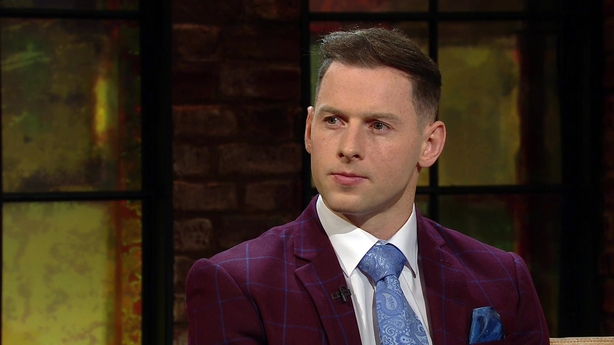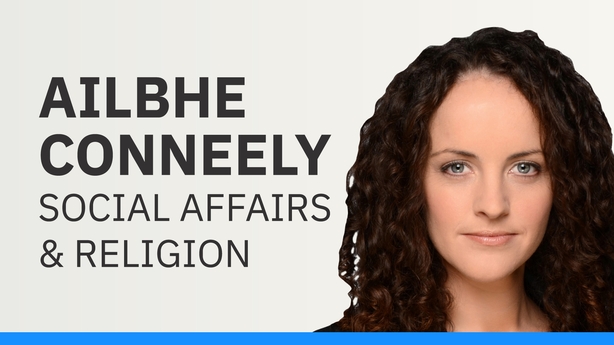The latest Citizens' Assembly, which is examining drug use in Ireland, has started its first meeting in Dublin.
One hundred people, including 99 randomly chosen members of the public, led by Chairperson Paul Reid will examine the issue over the next six months.
The first session of the Citizens' Assembly opened with an introduction and background to the terms of reference that will underpin meetings over the coming months.
Between now and October the assembly will consider the legislative, policy and operational changes Ireland could make to significantly reduce the harmful impacts of illicit drugs on society.
Some of the queries from the floor this morning centered around the amount of time that members will have to consider the wide issue of drugs use.
Mr Reid pointed out that much of the focus will centre on illicit drugs as is set out in the terms of reference.
Secretary Cathal O'Regan, who has been across a number of Citizens' Assemblies, said the six-month deadline is achievable.
It will look at drivers, prevalence, attitudes and trends in relation to drugs use in Irish society as part of the terms of reference.
The assembly will hear about the lived experience of people impacted by drugs use as well as their families and communities.
It is expected that the group will visit areas affected by drugs and hear from workers in addiction services on the ground.
International best practice
The assembly will today hear about international best practice, which will include an overview of drugs use and drugs policies from an EU perspective.
The session will include perspectives on the harmful impacts of drugs use as well as research and evidence about patterns and trends in Ireland.
This afternoon, Dublin GAA star Philly McMahon, who lost his older brother John in 2012 after a long battle with addiction, will be part of a moderated group discussion at the event.

Speaking on RTÉ's Saturday with Colm Ó Mongáin earlier, Mr McMahon said change is needed.
"We are never going to get rid of drugs but have to manage it better than what's there right now," he said.
"You can't walk into a pub, restaurant or nightclub without cocaine in a toilet...there's no sport, profession, social class or community that there there is no drugs in, nobody that can say they don’t know someone struggling with addiction, it has had to get to that point before we looked at changes."
Tomorrow, representatives of the Departments of Health and Justice as well as An Garda Síochána will offer their perspectives before it concludes at lunchtime.
The current Citizens' Assembly is expected to run until October when it votes on its recommendations.
Mr Reid aims to submit a final report to Government in December.
Fine Gael TD and Minister of State for the National Drugs Strategy Hildegarde Naughton said the assembly will allow an open and honest conversation about drug use in Ireland.
"Since December I have met with all the chairs of the drugs and alcohol task forces across the country," Ms Naughton said.
"I have visited the National Drug Treatment Centre, I have spoken to people who are directly working in this sector, to drug users themselves and what we need to do is continue rolling out a lot of the measures that are happening.
"What we want to do is make sure that we're not having people up in front of courts who actually need health care.
"It's not a criminal issue. It's an addiction issue and that's where they need to get the help."
Ms Naughton said women suffering addiction is particularly acute in a lot of cases because some have children and there are real concerns for them about coming forward.
Labour Leader Ivana Bacik welcomed the assembly as a forum where "careful deliberative process can take place, where complex issues around drug use are teased out and where there can be an evidence led series of recommendations".
"We want to see the drug user being treated in a very different way, not through criminalisation not through the criminal justice system, but in a health based way and a health led approach," she told RTÉ's Saturday with Colm Ó Mongáin.
"It doesn't serve anyone Least of all victims when you're simply seeing a revolving door of people being brought back before the courts in and out of prison for without the underlying addiction being tackled."
Sinn Féin's health spokesperson David Cullinane said the Citizens' Assembly had to be trusted and left to do its job.
"Everything that we do has to be has to be about reducing consumption, supporting people through addiction and through recovery and making sure that we have appropriate services," Mr Cullinane said.
"My preference would be that we would change legislation to give judges the ability to not impose a criminal sanction if a strong case is made that this was for personal use, and that a health intervention could be made and the community intervention could be made because a young person, for example, who takes cannabis and then has a criminal conviction, that follows them, it has an impact possibly down the road for that individual so I don't believe that that's the best approach."
Growing drug problem in Ireland

Ireland has a growing drug problem which is impacting individuals, families, communities and wider society.
Governments have sought to get a handle on the issue as far back as 1996 when the first report of the ministerial task force on measures to reduce the demand for drugs was drawn up by a committee of ministers of state under the chairmanship of Pat Rabbitte.
Local drug task forces monitored by a National Drug Strategy Team were created to provide a coordinated response to drug problems.
Twenty years after the publication of the Rabbitte Report as it became known, the CityWide Drugs Crisis Campaign pointed out that by 2021, the number of deaths from drugs had increased by 225% nationwide.
The same year the Health Research Board (HRB) - which has done invaluable work collecting data on drug and alcohol use - published findings of household surveys it conducted in 2019 and 2020.
The research showed that while illegal drug use had plateaued since 2014-2015, there were notable changes in the types of drugs being used nationwide.
The use of cocaine, ecstasy, amphetamines, LSD and poppers had significantly risen and there was a small reduction in cannabis use.
Cocaine use had doubled since 2002-2003 with more men aged 25-34 using it than ever before.






